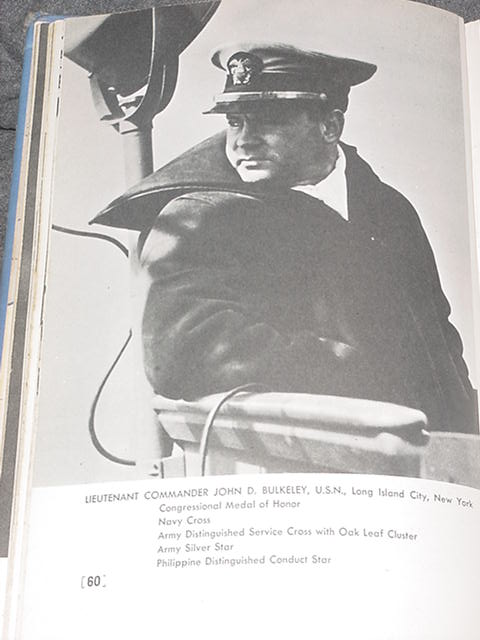Reprinted from [b]An Unfinished Life: John F. Kennedy, 1917-1963 by Robert Dallek. Back Bay Books. 2003. ISDN: 0-316-90792-8. pps. 95-99[/b] This question has been brought up by Rising Sun* among others. And I think Jack was a bit of what was more of an unlucky hero than incompetent commander in this. A lot of it having to do with the entire nature of the PT program that was presented as an elite of the US Navy by certain press-savvy officers, but in reality was largely ineffective in its original intent. Though something was salvaged in their use as essentially coastal patrol craft and gunboats later:
…
Jack’s boat was sent to the Russell Islands southeast of New Georgia in June and then in July to Lumbari Island in the heart of the combat zone west of New Georgia. On August 1, his boat – PT 109 – was one of fifteen PTs sent to Blackett Strait southwest of Kolombangara to intercept a Japanese convoy that had escaped detection by six US destroyers posted north of the island. The fifteen were the largest concentration of PTs to that point in the Solomons campaign. It also proved to be, in the words of the navy’s official history, ‘the most confused and least effective action the PT’s had been in." In a 1976 authoritative account, Joan and Clay Blair Jr. described the results of the battle as “a personal and professional disaster for PT commander Thomas G. Warfield.” He blamed the defeat on the boats’ captain: “There wasn’t much discipline in those boats,” he said after the war. “There really wasn’t any to control them very well…Some of them stayed in position. Some of them got bugged and didn’t fire when they should have. One turned around and ran all the way out of the strait.”
The attack by the boats against the superior Japanese force failed. Broken communications between PTs produced uncoordinated, futile action; only half of the boats fired torpedoes --thirty-two out of sixty available-- and did so without causing any damage. Worse yet, Jack’s boat was sliced in half by one of the Japanese destroyers, killing two of the crew members and casting the other eleven, including Jack, adrift.
Since the speedy PTs were fast enough to avoid being run over by a large destroyer and since Jack’s boat was the only PT ever rammed in the entire war, questions were raised about his performance in battle. “He (Kennedy) wasn’t particularly good boat commander,” Warfield said later. Other PT captains were critical of him for sitting in the middle of Blackett Strait with only one engine running, which reduced the amount of churning water that could be seen (and the likelihood of being spotted and bombed by Japanese planes) but decreased the boat’s chances of making a quick escape from an onrushing destroyer.
In fact, the failure lay not with Jack, but with the tactics followed by all PT boat captains and circumstances beyond Kennedy’s control. Since only four of the fifteen boats had radar and since it was pitch-black night, it was impossible for the other eleven PTs to either follow the leaders with radar or spot the Japanese destroyers. After the radar equipped boats fired their torpedoes, they returned to base and left the other PTs largely blind. “Abandoned by their leaders and enjoined to radio silence, the remaining PT boats had no real chance, in the pitch dark, of ambushing the Japanese destroyers,” one of the boat commanders later said.
cont’d

